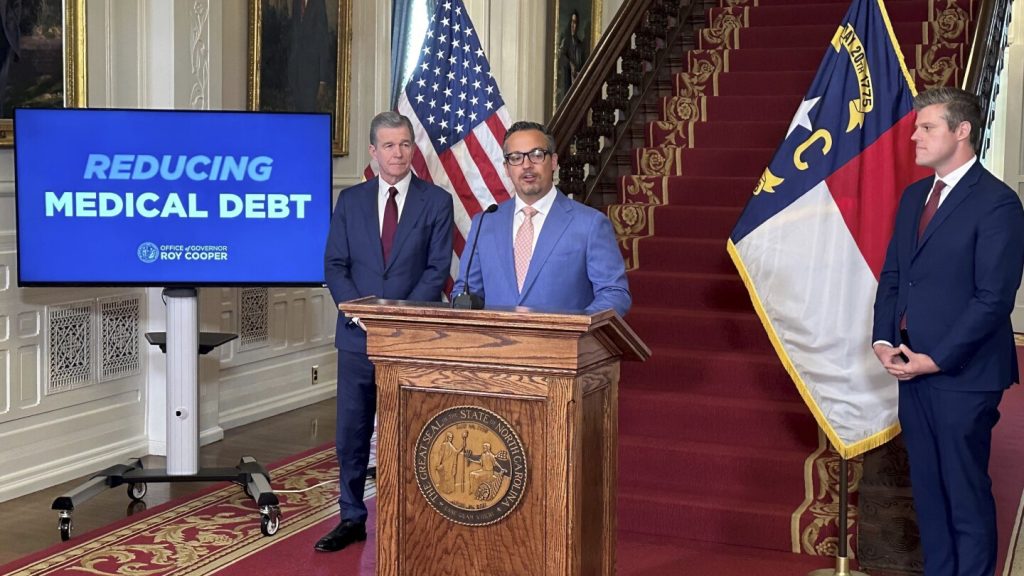North Carolina Governor Roy Cooper and state Health and Human Services Secretary Kody Kinsley have announced a groundbreaking initiative that will provide higher Medicaid payments to qualifying hospitals in the state. This initiative aims to relieve medical debt for low- and middle-income patients and implement strategies to prevent future patients from accruing debt. The proposal, submitted to federal Medicaid regulators six weeks ago, is expected to benefit about 2 million people in the state by eliminating $4 billion in hospital debt.
All 99 qualifying hospitals in North Carolina, including the state’s largest hospital systems, have agreed to participate in this voluntary debt-elimination effort. The Centers for Medicare and Medicaid Services have approved the plan, which will build upon an existing Medicaid reimbursement program for certain hospitals. Changes will begin to benefit consumers in the coming months, with the elimination of medical debt dating back to early 2014 for Medicaid enrollees and older debt for non-enrollees with low incomes or significant debt burdens.
In addition to relieving existing medical debt, participating hospitals will implement programs to prevent future debt accumulation. By January 1, hospitals will automatically enroll eligible individuals in charity care programs, and by July, they will be required to limit debt collection practices. The hospitals will also cap interest rates on medical debt and refrain from reporting unpaid bills to credit agencies. These measures aim to alleviate financial burdens on patients and promote financial stability for vulnerable populations.
The qualifying hospitals are already part of the Healthcare Access and Stabilization Program (HASP), which was approved last year by the General Assembly. This program, along with expanded Medicaid coverage for working adults, allows hospitals to draw down federal funds by paying assessments. Through the new medical debt initiatives, these hospitals will receive even higher levels of reimbursement, benefiting from an estimated $4 billion this fiscal year and a projected $6.3 billion next year. Other state and local governments have also utilized federal funds to purchase and cancel residents’ medical debt.
Governor Cooper expressed optimism about the hospitals’ decision to participate in the debt relief initiative, despite initial concerns from some hospital administrators. He noted that the hospitals recognized the benefits to their patients and communities and ultimately chose to sign up for the program. The North Carolina Healthcare Association, which represents both nonprofit and for-profit hospitals, has pledged to support hospitals in implementing the new initiative and addressing the root causes of medical debt. The initiative is seen as a positive step towards improving access to affordable, high-quality care for all residents of North Carolina.


